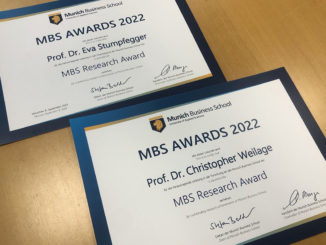
Like in every discipline, there are also jokes about or inside economics that are not entirely comprehensible to outsiders. One of them is the question: “We all know what a Pareto improvement is. So, what is a Jesus improvement?”
Well, of course we all do not know (yet) what a Pareto improvement is. In addition, the question arises as to what this could have to do with Jesus and what the specific reference to the upcoming Easter could be. Let’s take a closer look at this now.
To begin with, let’s look at the Pareto criterion. This is a concept that helps to make different end states, which are often the result of economic policy measures, comparable with each other or with an initial situation. Consider the following Easter example: Alice and Bob have found 10 eggs. There are still 4 eggs that have not been found and are now to be divided between the two of them. Three allocation mechanisms are available: Both receive 2 eggs each, Alice receives all 4 and Bob none, or Bob receives 5 eggs, for which Alice must give up 1 egg.
| Alice | Bob | |
| Status Quo | 10 | 10 |
| Allocation 1 | 12 | 12 |
| Allocation 2 | 14 | 10 |
| Allocation 3 | 9 | 15 |

A Pareto improvement exists if at least one individual can be made better off without making another worse off. Based on the status quo, allocations 1 and 2 would therefore be a Pareto improvement and we could recommend their implementation: With 1, both receive more and with 2, Alice is better off, while Bob is equally well off. With allocation 3, Bob receives more, but Alice has less, so there is no Pareto improvement. However, it is also not the opposite, a Pareto worsening, as Alice has less, but Bob has more. This means that we cannot compare the status quo with allocation 3 using the Pareto criterion.
Why do we need such a criterion? An important application is the assessment of economic policy interventions, i.e., answering the question of whether a certain measure should be implemented. However, the Pareto criterion is often impractical here as it is very strict – in the sense that no one should be worse off. A better method is the potential Pareto criterion (or Kaldor-Hicks criterion), according to which a measure should be implemented if the winners could potentially compensate the losers – but they do not actually have to do so. Allocation 3 could also be selected here, as Bob could transfer some of his advantage to Alice and both would still be better off. This is a useful evaluation criterion in economic policy, as there are often many different interventions. While some have a positive impact, others can have a negative effect. What is important, however, is that a positive net effect (on a social level) results in the end.
How does this relate to Jesus? Through his sacrificial death on Good Friday, Jesus made it possible for people to go to heaven themselves. A Jesus improvement would therefore be that one individual is extremely badly off, but everyone else is better off – in a sense as an extreme form of the potential Pareto criterion. Fortunately, however, Easter itself has a much better message: Three days later, Jesus rose again from the dead, so it was only a temporary worsening. In the end, it could be a Pareto improvement after all. With this in mind: Happy Easter!




